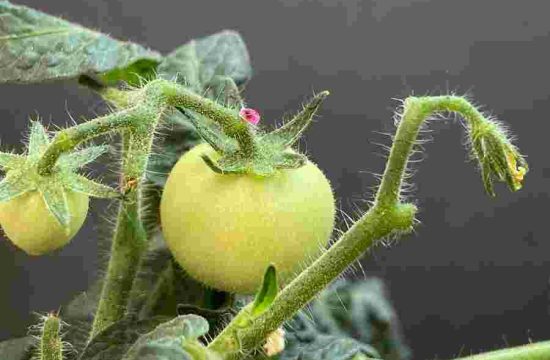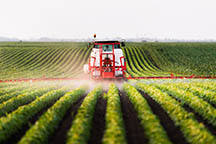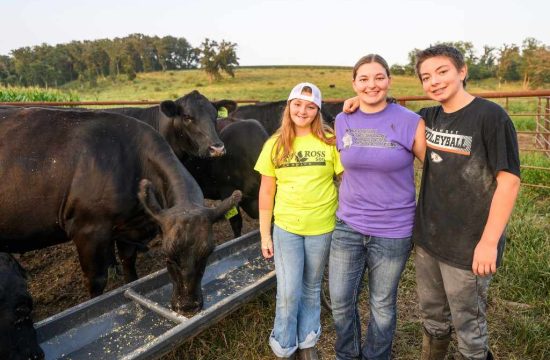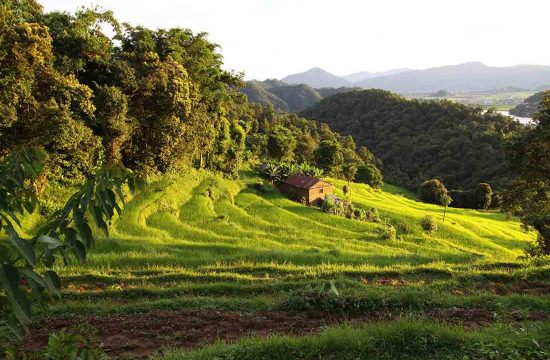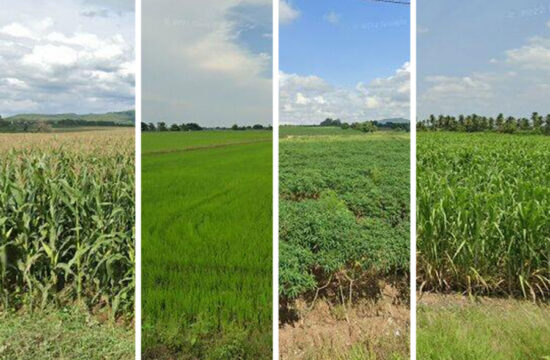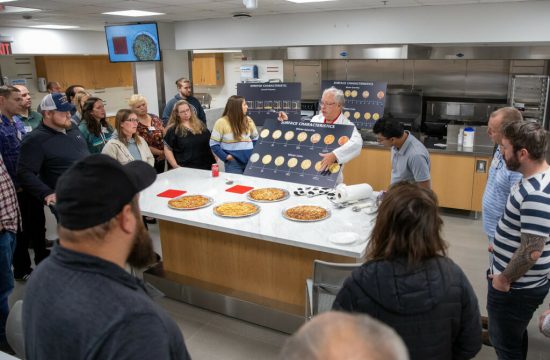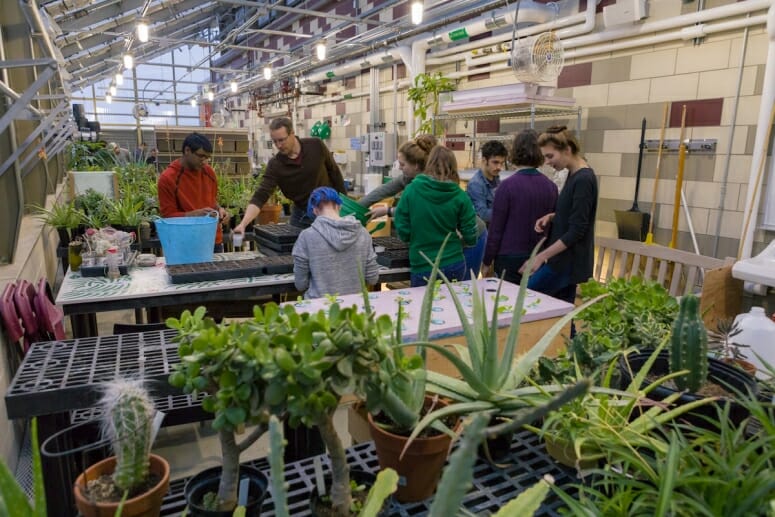
Teaching about agriculture and sustainability during semesters filled with classes and tests is hard enough. It’s even harder when most students are gone for the busy summer growing season.
But Alan Turnquist says having your own greenhouse doesn’t hurt.
Turnquist is the program coordinator for the GreenHouse Learning Community at the University of Wisconsin–Madison, one of 10 residential learning communities organized by University Housing. There, he gets to engage students as they explore sustainability and agricultural systems through seminars and hands-on experiences that are integrated with residential life.
Growing up in northern Wisconsin, Turnquist’s connection to the natural world was spurred by the time he spent around farms and forests. But it was travel, largely to Central and South America, that encouraged him to see the connections between poverty, development and sustainability, as well as the human element common to all of them.
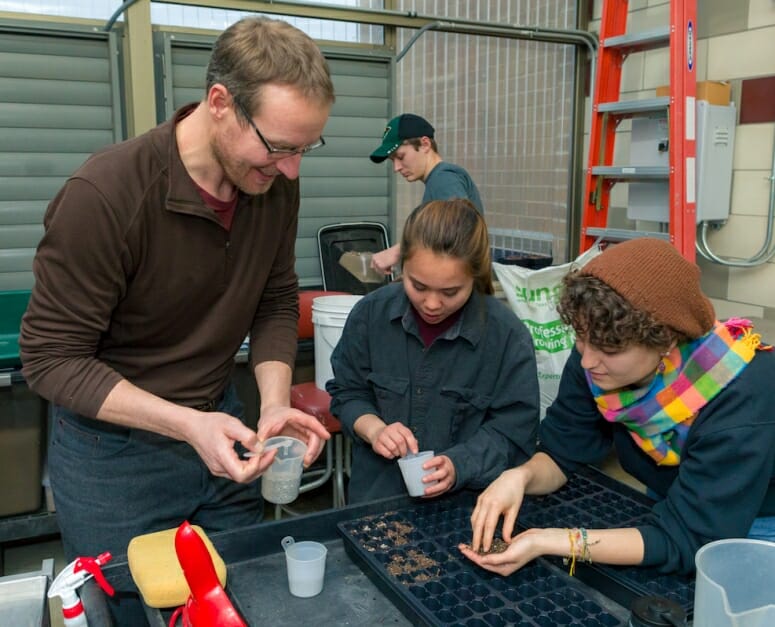
So after more than a year traveling by tandem bikewith his wife across North and South America, Turnquist returned to his alma mater intent on connecting with students about sustainability. In addition to his role at GreenHouse, Turnquist is the program administrator for the agroecology master’s program, where he helps guide graduate students through their research into sustainable agriculture.
Housed in Leopold Residence Hall — sandwiched between Lake Mendota and the Allen Centennial Garden — GreenHouse provides residents with a deep exploration of sustainability and agricultural systems. A collection of fall seminars focuses on the writings of the residence hall’s namesake, the late UW–Madison professor and influential conservationist Aldo Leopold. And although the curriculum expands beyond agriculture, food provides an approachable entry point to broad conversations about sustainability.
“Everybody eats, most people are pretty passionate about it, and food and agriculture are, I think, great ways to think about human existence and sustainability,” says Turnquist.
The greenhouse atop Leopold Hall lets students explore hydroponic growing systems and perform independent experiments. It also serves to start seedlings that are planted in the program’s garden plot at the Eagle Heights Community Garden. A few GreenHouse alumni are paid to manage the gardens over the summer, and planting schedules are arranged to time the biggest harvests for September, when new students arrive.
A multipurpose workshop helps students process up to 2,000 pounds of produce from the garden. Even in the winter, dried garlic and winter squash line shelves in the room. The residence hall’s extra-large kitchen, complete with two stoves, facilitates community meals.
“Now that I’ve been here for five years, it’s always really interesting for me to see somebody who’s a graduating senior,” says Turnquist. “Things that you get exposed to early on can have a big influence on what you do.”
One of those seniors Turnquist gets to follow is Hannah DePorter, an alum of GreenHouse who started the UW Food Shed last year. The program diverts extra produce from agricultural research fields — destined for the compost pile — to students and community members who can use it.
“Living in GreenHouse really sparked my love even more for environmental issues,” says DePorter.
In her spring semester at GreenHouse, DePorter grew seedlings for the Eagle Heights garden, which led to her work at the F.H. King student farm and to a job in horticulture Professor Irwin Goldman’s plant breeding lab. She changed her major from special education to conservation biology and environmental studies, which she credits to her experiences with GreenHouse and Turnquist.
“I think it completely set up how the rest of my college experience was,” says DePorter, who is pursuing law school for disability or environmental law after graduating this spring.
Though frustrated that the academic year precludes working with most students during the growing season, Turnquist cherishes engaging with students longer than most instructors with semester-long classes are able to.
“Even the semester model breaks down a bit here because the students come back,” Turnquist says. “In the spring, I have a lot of really meaningful conversations with students that are residents here because I’ve known them since the fall semester.”
“I really appreciate how much I get to interact with students, and I can still have an intellectual component — I can still teach in the fall and spring,” he adds. “You bridge those two worlds.”

